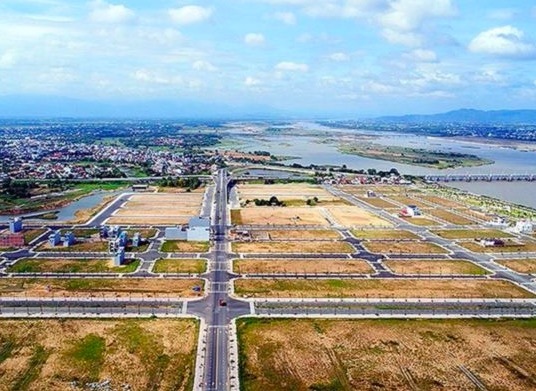Land price framework removal can aid infrastructure
Land price framework removal can aid infrastructure
At the end of August, Ho Chi Minh City People’s Committee issued a new regulation on the land price adjustment coefficient (so-called K index) which is assessed closely to the reality of the current real estate market. Besides that, the content of removing the land price framework is also being proposed in the draft amended Land Law.
These changes will contribute to promoting the issue of compensation and site clearance, a difficult problem in the process of infrastructure development, promoting the infrastructure development of the economy.
According to Article 113 of the Land Law 2013, the land price framework is the price (the highest or the lowest) for each specific type of land and the determination of this framework is issued periodically with a term of every five years.
The establishment of a land price framework aims to manage land prices in the market, helping state management agencies have a mechanism to control the land price lists of localities as well as determine the financial obligations of land users in the process of using the land.
However, in reality, the land price framework has not yet met the entire purpose set out initially, even creating a double-price mechanism which causes difficulties in the management and implementation of projects. In particular, a frequent consequence of the land price framework is prolonging the progress of projects due to congestion in the site clearance stage.
Therefore, Resolution No.18-NQ/TW has set out a specific task when the draft amendments to the 2013 law on redefining the land price determination method to suit the market mechanism at the current time.
In the view of the Ministry of Natural Resources and Environment, the abolition of the land price framework is a task that needs to be focused on in order to fully overcome limitations and inadequacies arising in actual implementation of the law currently.
The removal of the land price framework means that the state does not apply the minimum and maximum prices to each type of land, but instead, before issuing the land price list of each locality, the local people’s committee will base it on the principles and methods of land valuation, land prices and standards, and the fluctuations in actual land prices in the market, to build a land price list which is close to the real price in the market.
Land law is always a sensitive issue in any legal system and in particular this amendment is about moving to a market value framework, so getting rid of the old, stipulated price framework to a market-based one. This is very important because it allows the development of the country and the market, helps attract investors, and gets rid of many roadblocks. Both Party General Secretary and Prime Minister recently commented on the delays in public expenditure and infrastructure.
Coming out of the pandemic, we need that infrastructure spending to stimulate the economy, but it has been very slow and that’s all because, in the main part, compensation and land allocation. So by getting around this market framework to move towards a market value, the compensation will speed up and develop the country quicker. Therefore, this amendment is critical.
Quite often when land is allocated, the compensation has been poorly thought about because of the existing stipulated price framework. By identifying real estate based on market value, everybody gets fair value when they are compensated, allowing a speeding process and infrastructure to continue and allowing society to evolve and more benefits for everyone. Rather than an old system that prevented fair compensations, causing holdout provisions.
These new land laws amendment will help the market to become more stable and developed. This is a key part because this will help the market to become more transparent. So all of these allocated lands and compensated lands will be market value, giving investors more confidence. It is also very important because it allows groundwork for taxation, and this is a big part that the state has been missing out on because there is no land value for taxation.
This is something that has happened all over the world, so Vietnam is in a good position to benefit from every other country’s experience and implement an advantageous system for society.



























